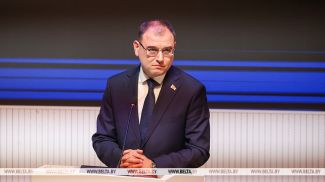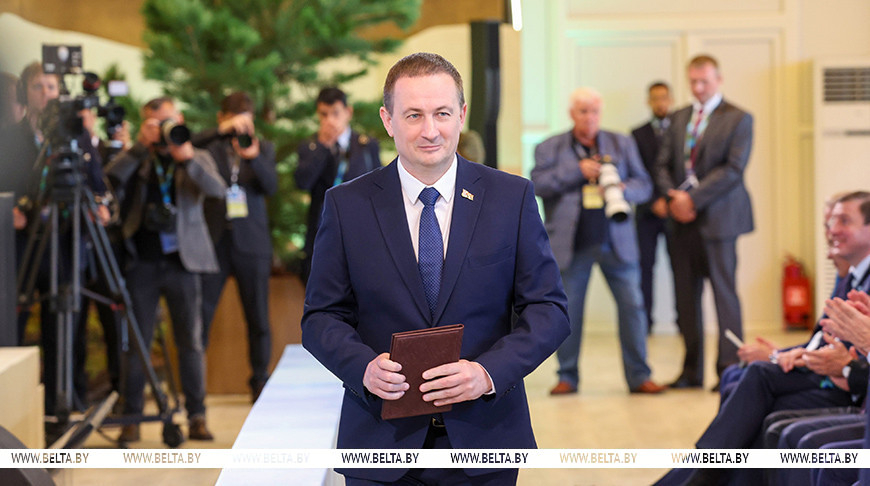
Aleksandr Turchin
GORNO-ALTAYSK, 25 July (BelTA) - Belarus will not be complacent with its current achievements in addressing environmental challenges and will continue to intensify efforts in environmental protection and sustainable natural resource management, Belarusian Prime Minister Aleksandr Turchin said at the plenary session “Environmental Challenges: On the Path to Sustainable Development” at the International Environmental Conference held at the Manzherok resort in Russia’s Altai Republic, BelTA has learned.
Alekasndr Turchin noted that thanks to systematic and targeted efforts, Belarus currently ranks 32nd out of 180 countries in the Environmental Performance Index (EPI). He emphasized that work is being carried out across all key environmental sectors.
“Water resources, as a vital natural asset, are a national treasure in all countries. Belarus is home to over 20,000 watercourses and 10,000 lakes. Our national water protection policy is based on principles of improving the ecological state of surface water bodies and preventing pollution, siltation, and depletion. Water efficiency is assessed through the integration of recycling and reuse systems in industrial processes. Despite economic growth, Belarus has reduced water consumption by 24% compared to 2000 levels,” Aleksandr Turchin stated.
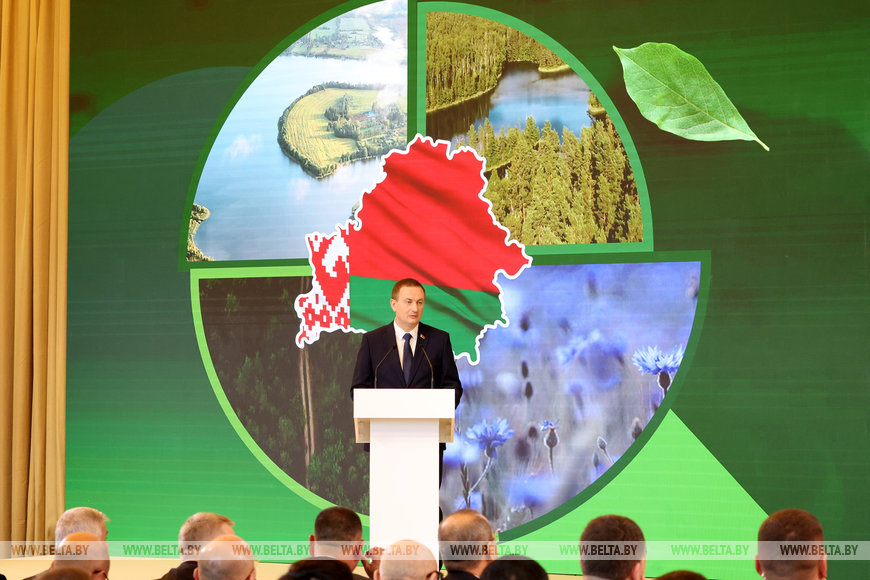
He added that due to timely upgrades of municipal wastewater treatment plants, discharges of insufficiently treated wastewater have decreased 7.8-fold over the past two decades and now account for just 0.2% of total wastewater released into surface waters.
The prime minister also highlighted Belarus’ efforts to maintain high air quality standards.
“Monitoring is conducted in all industrial cities, with an expanding and improving observation network. The Automated Environmental Monitoring Information System collects real-time air quality data from monitoring stations and industrial emission controls. The system instantly relays information to regional environmental authorities, enabling swift responses to regulatory violations,” he said.
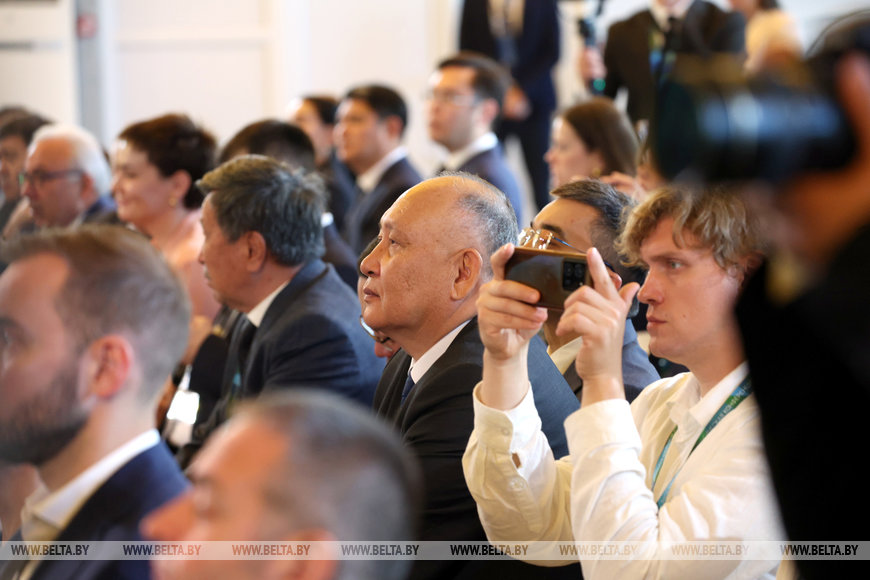
Regarding international climate obligations, Aleksandr Turchin reported: “Under the Paris Agreement, Belarus aimed to reduce greenhouse gas emissions by 35-40% from 1990 levels by 2030 - a target already exceeded. Work is underway to set a new, more ambitious emission reduction goal for 2035.”
According to him, the share of renewable energy (wind, hydro, solar) in Belarus’ total heat and electricity supply has reached 7.3%.
Belarus has seen rapid growth in electric mobility, Aleksandr Turchin added. The number of electric passenger cars surged 3.4-fold in 2024. Electric public transport now accounts for over 40% of Minsk’s urban transit and continues to grow.
“The specially protected natural areas form the ecological framework of our country. Belarus has achieved significant results and demonstrates substantial progress in this direction, particularly over the past decade. The country's existing system comprises 1,355 specially protected natural areas. As a result of systematic work, the area of protected natural territories has been steadily increasing and currently exceeds 1.9 million hectares, accounting for 9.2% of the country's territory,” Aleksandr Turchin stated.
“Thanks to systematic and targeted efforts, Belarus currently ranks 32nd out of 180 countries in the Environmental Performance Index. Belarus will not rest on its achievements and will continue to intensify efforts in fulfilling its objectives in environmental protection and sustainable natural resource management. We are prepared to actively participate in shaping the CIS green agenda and express our interest in implementing joint projects with partners within the CIS and other integration associations,” the prime minister concluded.
Attending the International Environmental Forum are Belarusian Prime Minister Aleksandr Turchin, Russian Prime Minister Mikhail Mishustin, and government delegations from Armenia, Kazakhstan, Kyrgyzstan, Tajikistan, Turkmenistan, and Uzbekistan. Key discussion topics include climate change, the expansion of national parks, and biodiversity conservation.
According to Russian Prime Minister Mikhail Mishustin, environmental pressures have been increasing recently, making it necessary for countries to work together to improve the ecological situation for future generations.
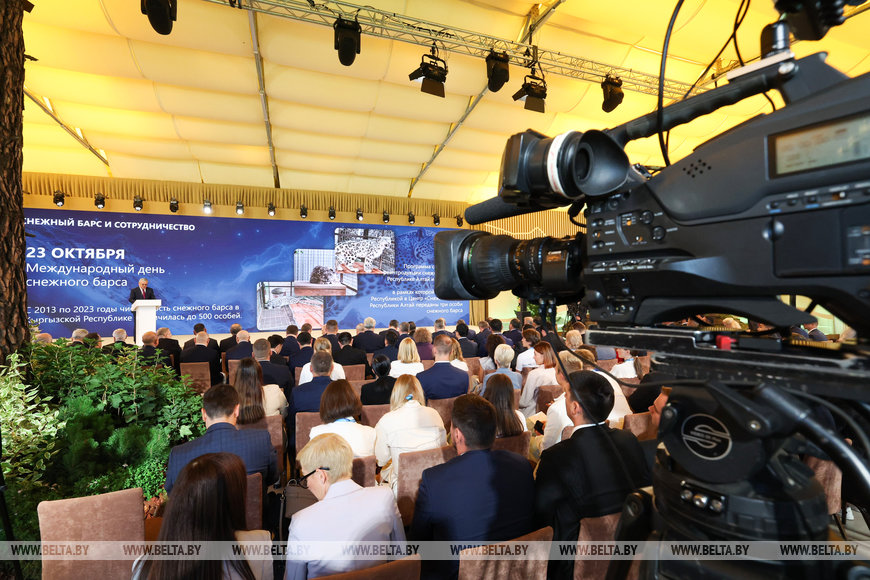
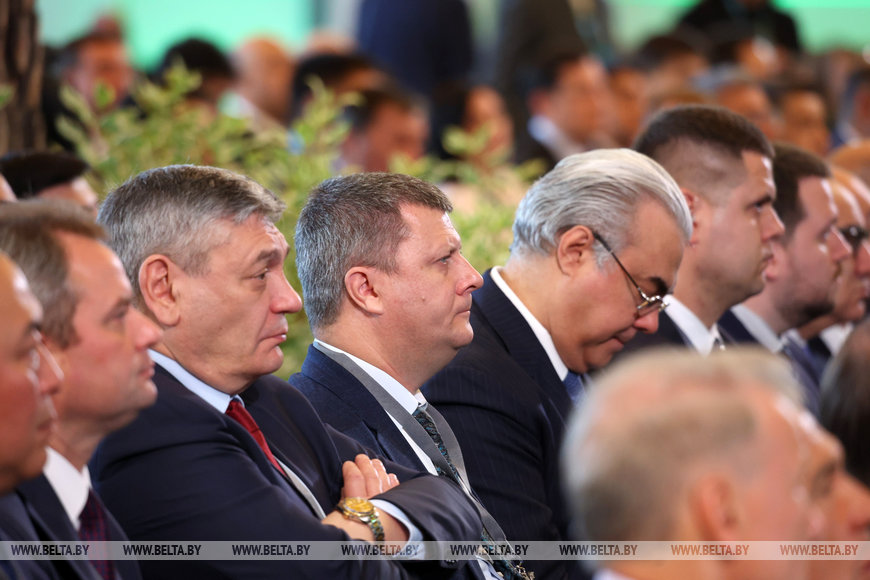
Alekasndr Turchin noted that thanks to systematic and targeted efforts, Belarus currently ranks 32nd out of 180 countries in the Environmental Performance Index (EPI). He emphasized that work is being carried out across all key environmental sectors.
“Water resources, as a vital natural asset, are a national treasure in all countries. Belarus is home to over 20,000 watercourses and 10,000 lakes. Our national water protection policy is based on principles of improving the ecological state of surface water bodies and preventing pollution, siltation, and depletion. Water efficiency is assessed through the integration of recycling and reuse systems in industrial processes. Despite economic growth, Belarus has reduced water consumption by 24% compared to 2000 levels,” Aleksandr Turchin stated.

He added that due to timely upgrades of municipal wastewater treatment plants, discharges of insufficiently treated wastewater have decreased 7.8-fold over the past two decades and now account for just 0.2% of total wastewater released into surface waters.
The prime minister also highlighted Belarus’ efforts to maintain high air quality standards.
“Monitoring is conducted in all industrial cities, with an expanding and improving observation network. The Automated Environmental Monitoring Information System collects real-time air quality data from monitoring stations and industrial emission controls. The system instantly relays information to regional environmental authorities, enabling swift responses to regulatory violations,” he said.

Regarding international climate obligations, Aleksandr Turchin reported: “Under the Paris Agreement, Belarus aimed to reduce greenhouse gas emissions by 35-40% from 1990 levels by 2030 - a target already exceeded. Work is underway to set a new, more ambitious emission reduction goal for 2035.”
According to him, the share of renewable energy (wind, hydro, solar) in Belarus’ total heat and electricity supply has reached 7.3%.
Belarus has seen rapid growth in electric mobility, Aleksandr Turchin added. The number of electric passenger cars surged 3.4-fold in 2024. Electric public transport now accounts for over 40% of Minsk’s urban transit and continues to grow.
“The specially protected natural areas form the ecological framework of our country. Belarus has achieved significant results and demonstrates substantial progress in this direction, particularly over the past decade. The country's existing system comprises 1,355 specially protected natural areas. As a result of systematic work, the area of protected natural territories has been steadily increasing and currently exceeds 1.9 million hectares, accounting for 9.2% of the country's territory,” Aleksandr Turchin stated.
“Thanks to systematic and targeted efforts, Belarus currently ranks 32nd out of 180 countries in the Environmental Performance Index. Belarus will not rest on its achievements and will continue to intensify efforts in fulfilling its objectives in environmental protection and sustainable natural resource management. We are prepared to actively participate in shaping the CIS green agenda and express our interest in implementing joint projects with partners within the CIS and other integration associations,” the prime minister concluded.
Attending the International Environmental Forum are Belarusian Prime Minister Aleksandr Turchin, Russian Prime Minister Mikhail Mishustin, and government delegations from Armenia, Kazakhstan, Kyrgyzstan, Tajikistan, Turkmenistan, and Uzbekistan. Key discussion topics include climate change, the expansion of national parks, and biodiversity conservation.
According to Russian Prime Minister Mikhail Mishustin, environmental pressures have been increasing recently, making it necessary for countries to work together to improve the ecological situation for future generations.
He emphasized that the current environmental challenges cannot be addressed by any single country alone. “Unfortunately, we have recently seen increasing pressure on the environment. Naturally, if we want to preserve nature's wealth for future generations, we must work together to improve the ecological situation as this concerns people's health and wellbeing,” Mikhail Mishustin stressed.










